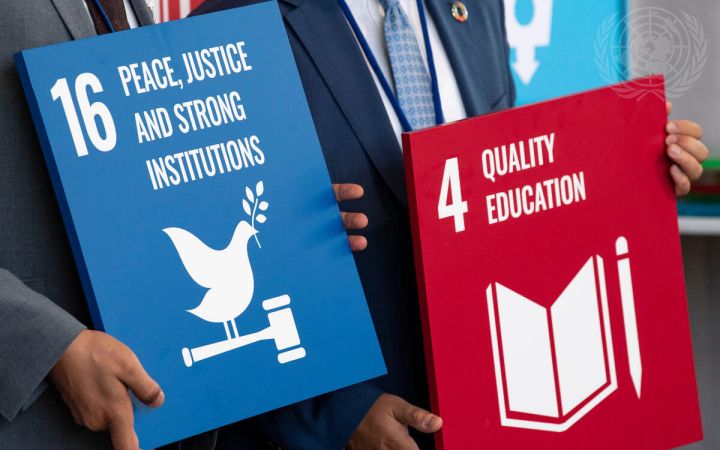As the world grapples with complex, interconnected challenges—ranging from climate change and biodiversity loss to growing inequality and violent conflict—there is an urgent need to equip the next generation with the knowledge and skills to build a sustainable, equitable, and peaceful future. The United Nations Institute for Training and Research (UNITAR) is addressing this imperative through its innovative Online Learning and Education Unit.
At the core of UNITAR’s online initiatives are key competencies essential for advancing the Sustainable Development Goals (SDGs) and the New Agenda for Peace. These competencies, identified by UNESCO, include systems thinking, anticipatory thinking, normative understanding, strategic planning, collaboration, critical analysis, self-awareness, and integrated problem-solving.
“Achieving the ambitious goals of the UN Agenda 2030 and Our Common Agenda requires a profound transformation in how we live, work, and govern ourselves,” explains Evariste Karambizi, Director of UNITAR’s Division for Peace. “Cultivating these core competencies is critical to empowering people to be active agents of change within their communities and globally.”
Through a suite of interactive online courses, as well as Master’s and Doctoral programmes, UNITAR offers learners from diverse backgrounds opportunities to develop these vital capabilities. “Many of today’s challenges are systemic and cannot be addressed in isolation. Our courses and programmes equip participants with the analytical tools to see the bigger picture, anticipate unintended consequences, and devise holistic solutions” says Karambizi.
In addition to systems-oriented training, UNITAR provides programmes focused on building normative competencies. Courses such as “Values, Ethics, and Sustainability” enable learners to critically examine the principles guiding decision-making and to negotiate shared goals amid competing interests. “Sustainable development is not just about facts and figures—it’s about our collective values and visions for the future,” Karambizi notes. “These offerings empower people to be reflective, principled leaders who can navigate moral dilemmas and work towards the common good.”
UNITAR’s online curriculum also prioritizes the development of collaborative and self-awareness competencies. Courses like “Negotiation and Mediation for Sustainable Peace” and “Mindfulness for Sustainable Living and Climate Security” help learners hone their interpersonal skills, deepen emotional intelligence, and cultivate the self-knowledge needed to drive positive change. “Effective collaboration, conflict management, and self-awareness are essential for addressing peacebuilding, development, climate change, gender equality, and inclusive communities,” Karambizi explains.
By integrating these diverse competencies into its online programming, UNITAR prepares learners to become “human-centred professionals”—individuals with deep, specialized expertise and broad, adaptable skills capable of navigating complex situations. “Future jobs will demand more than technical know-how. Employers and communities need people who can think critically, collaborate across boundaries, and solve problems holistically. That’s what our courses are designed to nurture.”
The impact of UNITAR’s efforts is already evident. Graduates of these programmes have launched sustainability-focused startups, led climate action initiatives, resolved local conflicts, and secured positions at international organizations and government agencies. As the world faces an increasingly complex and uncertain future, the need for transformative education has never been greater. UNITAR is ensuring that more people have access to the competencies required to build a better world. “We are not just preparing people for jobs—we are cultivating the next generation of systems-savvy, values-driven changemakers. That’s the kind of future-fit workforce the world urgently needs,” concludes Karambizi.


